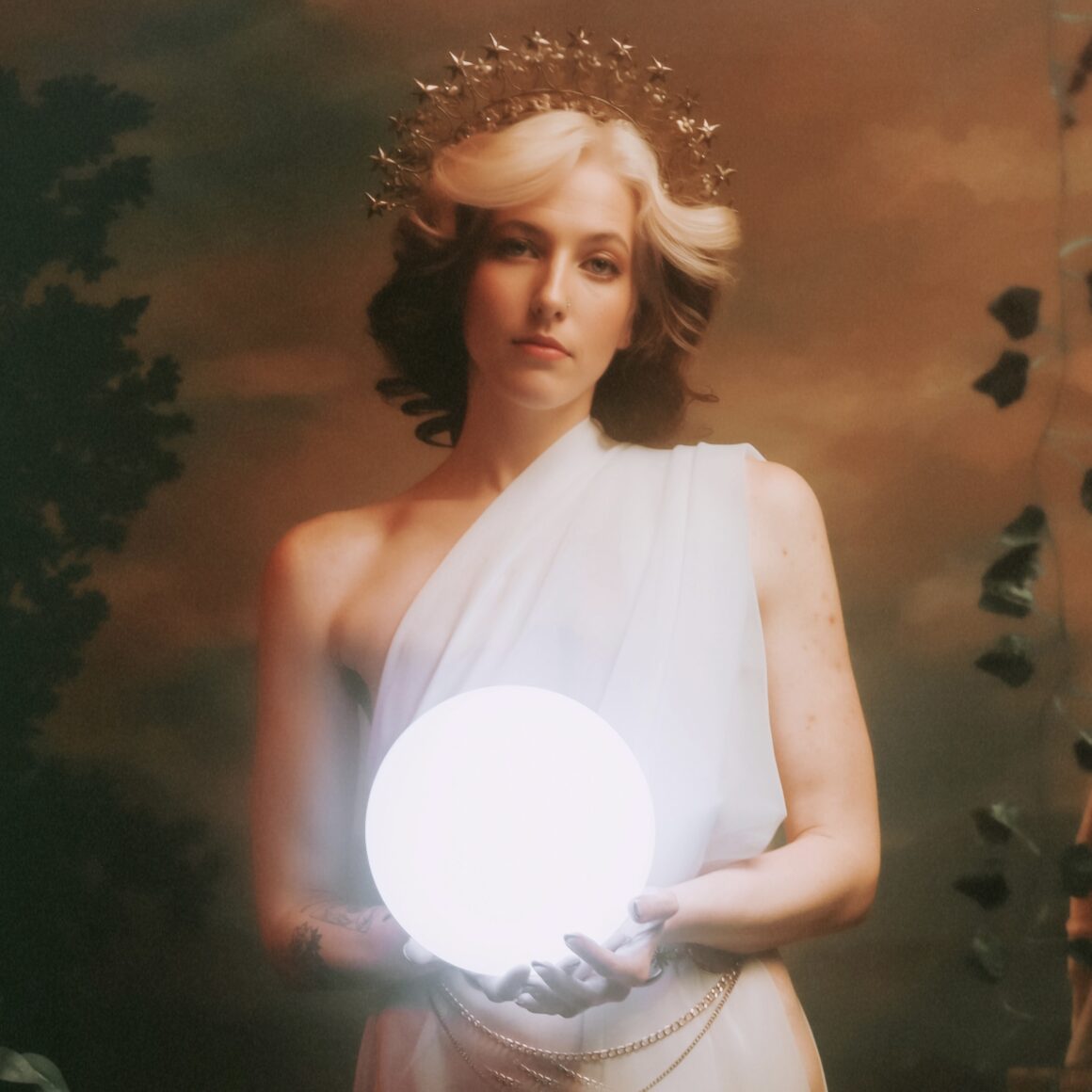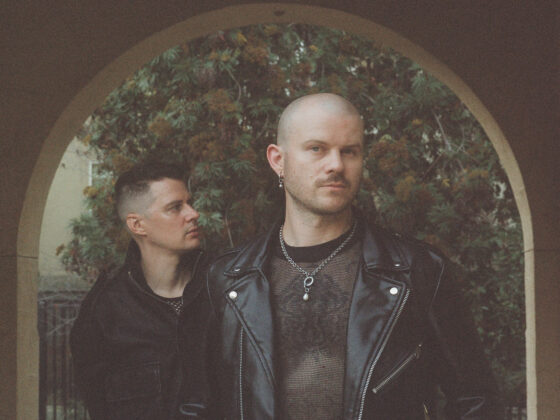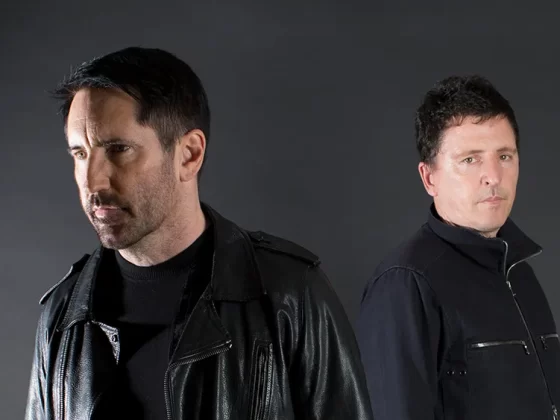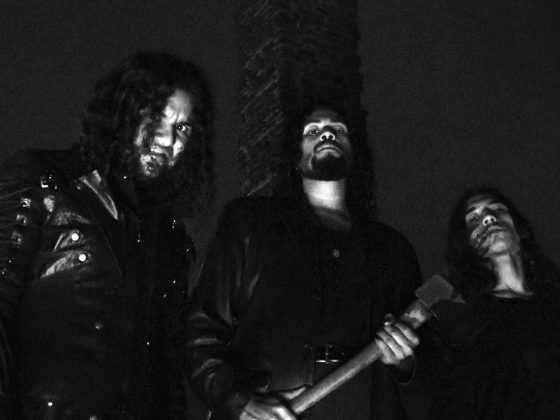Baltimore’s Marie Ann Hedonia deals in thresholds, in the half-light where one genre bleeds into another. Techno blurs against trip-hop, noirish synth-pop buckles into dark ambient, and modular jazz flickers at the margins like a phantom signal. Her new four-track set, Solar Eclipse, released on September 26, treats music less as a conventional art form than as a cosmic experiment, refracting its palette through the stark oppositions of shadow and illumination like stars stretched by the gravity well of the sun. The record orbits the raw material of rupture—heartbreak, fury, release—but carries itself with the cold assurance of a machine made for bodies in motion. It is also a deeply communal act: Hedonia opens her circuitry to the voices of collaborators Black Kite, Casey Desmond, Delia Liederschuh, and The Galaxy Electric, each guest reshaping her architecture of pulse and void.
The cycle began with “Eve Had the Metallic Shine of Summer” (feat. Black Kite), a piece steeped in both confession and menace. Spoken-word poetry drifts over cinematic synthesis, recalling the melancholic sprawl of Moby’s Play, the feral poetics of PJ Harvey, and Anne Clark’s haunted declamations. Directed by Alex Shaak, the accompanying video channels Bergman’s Persona, its hollow-eyed succubus embodying the vampiric draw of codependency and addiction. Filmed guerrilla-style across Baltimore, the sudden intrusion of a thunderstorm feels less accident than augury, elemental fury stitched into the song’s grain. Black Kite’s words land like broken glass: “relationships that masquerade as love or comfort, but are actually antithetical to both.” Hedonia’s Buchla pulses answer with a machinery that never relents, dialogue between flesh and circuit, intimacy and annihilation.
If “Eve” is the record’s shadow, then “Fuck Your Feelings (Salt in the Wound)” (with Casey Desmond) is its fluorescent backlash. A rising arpeggio gives way to a chrome beat; Desmond’s voice, bright and merciless, gleams like neon tubing cracked under pressure. It is a kiss-off carved into circuitry, a synth pop track that transcends decades, wired to burn bridges rather than build them. Hedonia’s programming sets a polished surface that Desmond claws into with hooks sharpened to laceration.
“CVNT$MaSHER” (feat. Delia Liederschuh) arrives as confrontation incarnate. Jungle percussion tangles with trance atmospherics, a palpitating heart that lets Liederschuh spit a liturgy equal parts curse and manifesto. The bass is bodily—felt in the sternum more than heard—its pressure a kind of violence. Imagine Portishead stripped of their smoky haze, Massive Attack rendered jagged and metallic, Prodigy’s menace funneled into feminist reprisal. It is club music as retribution, dancefloor as tribunal.
The closing piece, “Passages Pt. 2” (feat. The Galaxy Electric), unfolds as a train ride across the underworld. A whistle in the distance, locomotive pistons grinding, choral vapors rising like lost souls at the platform. The track mutates through three distinct forms: electronica muscle with rubbery synths, fractured transmissions bleeding in from some parallel frequency, then finally retro circuitry writhing against rapid-fire percussion and wordless cries. It feels at once cosmic and claustrophobic, the sense of motion relentless until the piece exhales. Here Hedonia proves herself not merely a producer but a cartographer of movement—mapping rhythm against silence, propulsion against collapse. The eclipse becomes literal: shadow traversed, light glimpsed at the far horizon.
Across these four invocations, Hedonia builds coherence not through genre fidelity but through sound design as philosophy: Buchla and Serge timbres etched against silence, beats programmed with an ear for tension and absence, collaborators folded into the circuitry like sudden apparitions. The sequencing is deliberate: concept (”Eve”), catharsis (”Fuck Your Feelings”), confrontation (”CVNT$MaSHER”), transcendence (”Passages”). A work as concise as it is mercurial, Solar Eclipse confirms Hedonia as an artist equally at ease in jazz ensembles—her appearance on Jeremy Pelt’s Woven earlier this year—as in the club. This is not merely an EP; it is a ritual of thresholds, a crossing into shadow where the machinery hums, and the voices refuse to be eclipsed.
Listen to the EP below, and order here
Follow Marie Ann Hedonia:
















 Or via:
Or via: